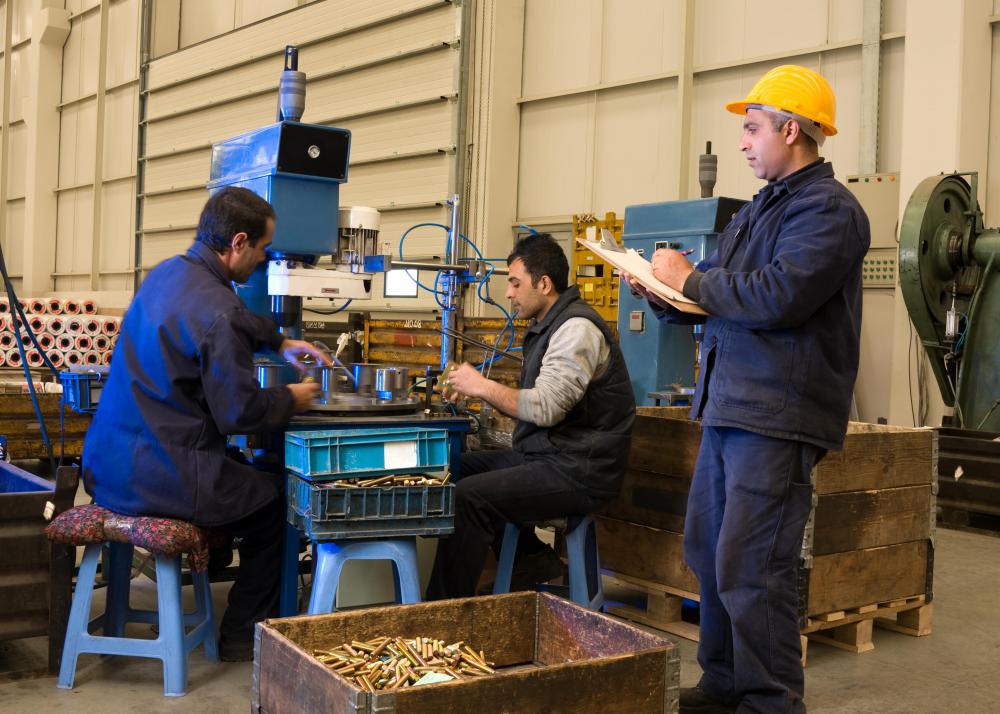At WiseGEEK, we're committed to delivering accurate, trustworthy information. Our expert-authored content is rigorously fact-checked and sourced from credible authorities. Discover how we uphold the highest standards in providing you with reliable knowledge.
How Do I Become a Facilities Engineer?
To become a facilities engineer, it is necessary to have at least a bachelor's degree in engineering or equivalent experience on the job, along with a knowledge of regional building and safety codes. Facilities engineers design, build and maintain buildings and systems that are used in commercial activities such as manufacturing or that are used for housing large organizations, agencies and companies. This work can be quite varied, and good people skills are highly beneficial for people who are interested in careers in this field.
The traditional way to become a facilities engineer is to pursue a bachelor's degree in engineering or a related field, with a focus on subject areas that are relevant to facility design and maintenance. Students might want to consider internships for work experience and for the possibility of professional connections. They can choose to double major for a broader depth of knowledge or might consider graduate school for advanced engineering training.

College graduates will need to know building codes before they can work in this field. A student who plans to be a facilities engineer might want to start reading code documentation early to develop a thorough depth of knowledge. Codes can vary by region, and if someone not know where he or she wants to work, that person might want to consider studying national code books to get a broad overview. Some colleges and universities also offer classes that specifically cover building codes and related issues.

Another option is to acquire work experience in the field. A person can become a facilities engineer by working in a maintenance department to build up skills and experience. Over time, familiarity with various systems used in a facility can develop into a broad depth of knowledge and the ability to maintain and repair these systems. On-the-job experience might also familiarize workers with building codes and safety issues that might arise in the workplace. Some employers might accept someone who wants to become a facilities engineer if that applicant has substantial work experience, even if he or she doesn't have a college degree.

No matter which path someone chooses to become a facilities engineer, continuing education is a good idea. Conferences, trade journals and courses can help people keep up with changes to building codes as well as generally accepted standards and practices in the industry. It also can be helpful to join a professional organization for networking purposes as well as access to members-only content such as specialized trainings. Professional memberships might be useful on job applications, especially when paired with strong background experience in the field.
AS FEATURED ON:
AS FEATURED ON:
















Discuss this Article
Post your comments